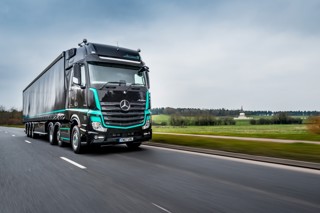Growth in the UK van parc, driven largely by online shopping, has almost doubled that of cars since the start of the century, Society of Motor Manufacturers and Traders (SMMT) research has found.
Its Light Commercial Vehicles: Delivering for the UK Economy report has found there are currently almost 4.6 million vans on the UK’s roads, with 357,325 new and 900,000 used vehicles sold last year.
The overall figure is 59% higher than the number of vans on the road in 2000. Over the same time period, the number of cars has risen 29% to 31.5m.
As well as the boom in online shopping, SMMT said a rapid rise in the number of self-employed people, up from 3.3m in 2001 to 4.8m in 2017, has also been a key driver of van growth, with the trend to vehicle downsizing another factor.
The report states 3.4m people use or depend on vans for their work, with a combined wage bill of at least £56 billion, equating to 11% of GDP.
However, the document, published in conjunction with management and technology consultancy BearingPoint, says this figure accounts only for part of the contribution vans make to the economy, as the UK is also home to two major van manufacturing plants, as well as a thriving sub-economy of van conversion companies and a strong aftermarket sector.
The report says 96% of the UK’s vans are powered by diesel, with UK average new van CO2 falling to 166.93g/km last year, down 10.4% since 2013.
Manufacturers are investing heavily to bring an exciting range of ultra-low and zero emission vans to market.
While there is an increasing appetite for these vehicles, demand remains low, accounting for just 0.3% of the market in 2018.
Mike Hawes, chief executive of SMMT, said: “The UK’s van fleet is the backbone of our society, driving our economy and allowing millions of workers to carry out jobs that our country relies on.
“Industry is supporting these businesses by responding to a changing society, developing and delivering the cleanest and safest vehicles in history.
“To continue to thrive, this vital sector needs policies and incentives that encourage businesses to invest in the latest technology that best suit their needs to help them deliver for Britain.”






















Login to comment
Comments
No comments have been made yet.